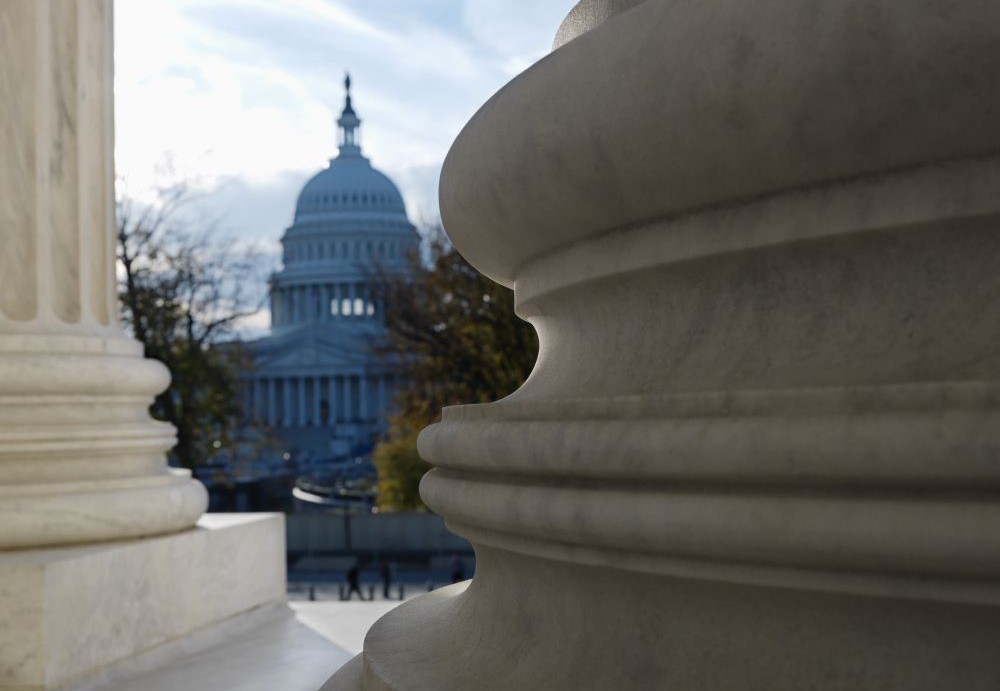
Plenty of questions are emerging regarding the U.S. Supreme Court’s decision to overrule the Chevron Doctrine. The repercussions of this case strengthen the Organic Trade Association’s resolve to advocate for continuous improvement in the regulatory process, and to provide technical expertise to congressional offices that need it now more than ever. As we explore those impacts in detail, it’s important to remember the decision underlines the value of the entire organic industry working together - from seed to shelf.
Background
The Supreme Court's June decision in the cases of Loper Bright Enterprises v. Raimondo and Relentless, Inc. v. Department of Commerce marks a significant shift in administrative law. These cases centered on a 1976 federal law that required herring boats to carry federal observers to collect data used to prevent overfishing. Under a 2020 regulation, boat owners were also required to pay $700 a day for these observers. Fishermen in New Jersey and Rhode Island contested this fee, arguing that the National Marine Fisheries Service lacked the authority to impose it. Appeals courts in Washington and Boston ruled in favor of the government, citing the Chevron deference principle established in 1984, which mandated courts to defer to an agency's reasonable interpretation of an ambiguous statute.
In a 6-3 opinion authored by Chief Justice Roberts, the Supreme Court overruled the 1984 Chevron v. Natural Resources Defense Council decision, significantly limiting the power of federal agencies. This ruling is expected to have widespread implications, putting numerous federal rules and regulations at risk of being challenged in court. For context, approximately 70 Supreme Court decisions and 17,000 lower court decisions have relied on Chevron precedent.
Additionally, in a 6-3 opinion in Corner Post, Inc. v. Board of Governors of Federal Reserve System, the Court's ruling changed the timeframe by which USDA regulations can be challenged.
Understanding Statutory Authority
Statutory authority refers to the legal power granted to government agencies through legislation enacted by Congress. This authority allows agencies to create and enforce regulations within the scope defined by the statute. When a law is ambiguous, agencies historically had the flexibility to interpret and implement regulations based on their expertise, guided by the principle of Chevron deference. This deference allowed courts to uphold agency interpretations as long as they were reasonable.
With the Supreme Court's recent decision, the scope of statutory authority granted to federal agencies may be more narrowly interpreted. Agencies will need to ensure that their regulations are explicitly supported by the statutory language, reducing their ability to make broad interpretations. This shift could lead to more legal challenges and necessitate clearer and more detailed legislation from Congress.
Possible Implications for USDA Organic Programs
The 1990 Organic Foods Production Act (OFPA) is fairly specific in establishing the structure and functioning of the USDA National Organic Program, which likely provides some protection to the program itself. However, we must be vigilant about potential impacts in areas where the USDA interprets recommendations from the National Organic Standards Board (NOSB). For instance, USDA defense of producer group certification relied, in part, on standing limitations that are now reinterpreted by the Corner Post ruling. Additionally, USDA decisions to promulgate standards that are not clearly delineated in OFPA may become even more contentious and subject to litigation due to Loper Bright ruling, given the reduced agency deference.
There is also a significant risk of USDA resources being consumed by contentious lawsuits, and even greater stagnation in the ongoing renovation and refinement of rulemaking. For several years, OTA has worked with a coalition of partners to move the Continuous Improvement and Accountability in Organic Standards Act (CIAO) to support the evolution of standards to meet consumer, farmer, and industry needs. This SCOTUS decision makes it even more important for the National Organic Program to have a clear mandate for updates to the standards. CIAO would clarify that the authority to update regulations is not left to interpretation.
Federal Rulemaking and the Organic Industry
Without Chevron's deference, Congressional staff will face the challenge of drafting more specific and prescriptive legislation, leaving minimal room for interpretation. One outcome of this shift could be increased needs and opportunities for industry experts within companies and associations to play a more significant role in filling knowledge gaps within Congressional offices. While it may be desirable for congressional staff to have deep expertise in nuanced aspects across all of agriculture including organic, it’s simply not feasible. As such, OTA strongly encourages its membership to stay engaged and collaborate in the trade association’s member communities. The industry needs people with deep knowledge across sectors to best craft legislation that drives the success of organic, from farm to retail. This case is a reminder that the unique and fundamental public-private partnership of organic is a working partnership not only with the USDA, but also with Congress.
Our Commitment to Advocacy and Support
The Organic Trade Association remains steadfast in its commitment to advocating for our members and the broader organic community. In response to the Supreme Court decision, we will continue our efforts to engage with policymakers, industry leaders, and stakeholders in the development of clear and meaningful legislation that has regulatory outcomes that benefit organic producers and consumers alike.
We encourage you to stay informed and actively participate in our advocacy initiatives. By working together, we can ensure that the organic sector continues to thrive in a fair and equitable regulatory environment.
